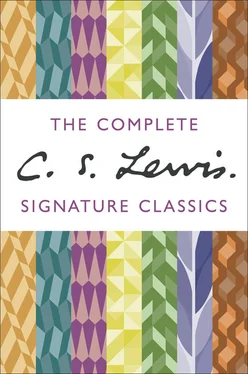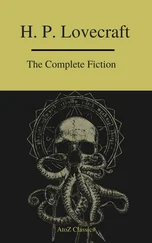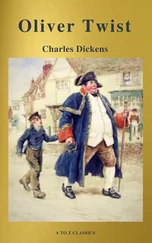Of course, you can express this in all sorts of different ways. You can say that Christ died for our sins. You may say that the Father has forgiven us because Christ has done for us what we ought to have done. You may say that we are washed in the blood of the Lamb. You may say that Christ has defeated death. They are all true. If any of them do not appeal to you, leave it alone and get on with the formula that does. And, whatever you do, do not start quarrelling with other people because they use a different formula from yours.
In order to avoid misunderstanding I here add notes on two points arising out of the last chapter.
(1) One sensible critic wrote asking me why, if God wanted sons instead of ‘toy soldiers’, He did not beget many sons at the outset instead of first making toy soldiers and then bringing them to life by such a difficult and painful process. One part of the answer to this question is fairly easy: the other part is probably beyond all human knowledge. The easy part is this. The process of being turned from a creature into a son would not have been difficult or painful if the human race had not turned away from God centuries ago. They were able to do this because He gave them free will: He gave them free will because a world of mere automata could never love and therefore never know infinite happiness. The difficult part is this. All Christians are agreed that there is, in the full and original sense, only one ‘Son of God’. If we insist on asking ‘But could there have been many?’ we find ourselves in very deep water. Have the words ‘Could have been’ any sense at all when applied to God? You can say that one particular finite thing ‘could have been’ different from what it is, because it would have been different if something else had been different, and the something else would have been different if some third thing had been different, and so on. (The letters on this page would have been red if the printer had used red ink, and he would have used red ink if he had been instructed to, and so on.) But when you are talking about God—i.e. about the rock bottom, irreducible Fact on which all other facts depend—it is nonsensical to ask if it could have been otherwise. It is what it is, and there is an end of the matter. But quite apart from this, I find a difficulty about the very idea of the Father begetting many sons from all eternity. In order to be many they would have to be somehow different from one another. Two pennies have the same shape. How are they two? By occupying different places and containing different atoms. In other words, to think of them as different, we have had to bring in space and matter; in fact we have had to bring in ‘Nature’ or the created universe. I can understand the distinction between the Father and the Son without bringing in space or matter, because the one begets and the other is begotten. The Father’s relation to the Son is not the same as the Son’s relation to the Father. But if there were several sons they would all be related to one another and to the Father in the same way. How would they differ from one another? One does not notice the difficulty at first, of course. One thinks one can form the idea of several ‘sons’. But when I think closely, I find that the idea seemed possible only because I was vaguely imagining them as human forms standing about together in some kind of space. In other words, though I pretended to be thinking about something that exists before any universe was made, I was really smuggling in the picture of a universe and putting that something inside it. When I stop doing that and still try to think of the Father begetting many sons ‘before all worlds’ I find I am not really thinking of anything. The idea fades away into mere words. (Was Nature—space and time and matter—created precisely in order to make many-ness possible? Is there perhaps no other way of getting many eternal spirits except by first making many natural creatures, in a universe, and then spiritualising them? But of course all this is guesswork.)
(2) The idea that the whole human race is, in a sense, one thing—one huge organism, like a tree—must not be confused with the idea that individual differences do not matter or that real people, Tom and Nobby and Kate, are somehow less important than collective things like classes, races, and so forth. Indeed the two ideas are opposites. Things which are parts of a single organism may be very different from one another: things which are not, may be very alike. Six pennies are quite separate and very alike: my nose and my lungs are very different but they are only alive at all because they are parts of my body and share its common life. Christianity thinks of human individuals not as mere members of a group or items in a list, but as organs in a body—different from one another and each contributing what no other could. When you find yourself wanting to turn your children, or pupils, or even your neighbours, into people exactly like yourself, remember that God probably never meant them to be that. You and they are different organs, intended to do different things. On the other hand, when you are tempted not to bother about someone else’s troubles because they are ‘no business of yours’, remember that though he is different from you he is part of the same organism as you. If you forget that he belongs to the same organism as yourself you will become an Individualist. If you forget that he is a different organ from you, if you want to suppress differences and make people all alike, you will become a Totalitarian. But a Christian must not be either a Totalitarian or an Individualist.
I feel a strong desire to tell you—and I expect you feel a strong desire to tell me—which of these two errors is the worse. That is the devil getting at us. He always sends errors into the world in pairs—pairs of opposites. And he always encourages us to spend a lot of time thinking which is the worse. You see why, of course? He relies on your extra dislike of the one error to draw you gradually into the opposite one. But do not let us be fooled. We have to keep our eyes on the goal and go straight through between both errors. We have no other concern than that with either of them.
May I once again start by putting two pictures, or two stories rather, into your minds? One is the story you have all read called Beauty and the Beast . The girl, you remember, had to marry a monster for some reason. And she did. She kissed it as if it were a man. And then, much to her relief, it really turned into a man and all went well. The other story is about someone who had to wear a mask; a mask which made him look much nicer than he really was. He had to wear it for years. And when he took it off he found his own face had grown to fit it. He was now really beautiful. What had begun as disguise had become a reality. I think both these stories may (in a fanciful way, of course) help to illustrate what I have to say in this chapter. Up till now, I have been trying to describe facts—what God is and what He has done. Now I want to talk about practice—what do we do next? What difference does all this theology make? It can start making a difference tonight. If you are interested enough to have read thus far you are probably interested enough to make a shot at saying your prayers: and, whatever else you say, you will probably say the Lord’s Prayer.
Its very first words are Our Father . Do you now see what those words mean? They mean quite frankly, that you are putting yourself in the place of a son of God. To put it bluntly, you are dressing up as Christ . If you like, you are pretending. Because, of course, the moment you realise what the words mean, you realise that you are not a son of God. You are not a being like The Son of God, whose will and interests are at one with those of the Father: you are a bundle of self-centred fears, hopes, greeds, jealousies, and self-conceit, all doomed to death. So that, in a way, this dressing up as Christ is a piece of outrageous cheek. But the odd thing is that He has ordered us to do it.
Читать дальше












